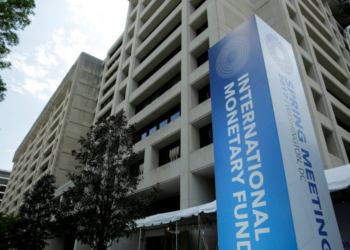This year is still on course to suffer the biggest drop in oil demand since reliable records started in the mid-1960s. Until now, the biggest annual contraction was recorded in 1980, when oil price tumbled by 2.6 million barrels a day as the global economy reeled under the impact of the second oil crisis.
Oil prices fell today as political leaders around the world escalated lockdowns to curb the spread of the global coronavirus pandemic that has plunged the demand outlook for oil and threatened global economic growth. For instance, Brent crude futures dropped by $1.09, or 4%, to $25.39 a barrel by 12.30-noon Nigerian local time. West Texas Intermediate crude was down 0.7%, at $22.48 per barrel.

Oil prices have fallen for four straight weeks and have given up about 60% since the start of the year.
[READ MORE: Brent Oil surges 10% trading at $27.29 per barrel)
Prices of everything in the financial asset class has also been hit by the crisis including, currencies, stocks and bonds.
The coronavirus, which has infected more than 325,000 and killed over 14,000 worldwide, has disrupted business, travel and daily life.
Many oil firms have rushed to reduce spending and some producers have already begun putting employees on leave.
The energy market has had to contend with the twin shocks of the demand destruction caused by the coronavirus pandemic and the unexpected oil price war that erupted between producers Russia and Saudi Arabia earlier February.
Demand is falling about 10 million barrels per day (bpd), or about 10% of daily global crude consumption, said Giovanni Serio, head of research at Vitol, the world’s biggest oil trader.
[READ ALSO: Crude oil hits $27.50, lowest level since 2003)
The International Monetary Fund (IMF) last week said it would be working closely with the Nigerian authorities in the coming days to assess any vulnerability which may be exposed by the sharp fall in crude prices, as Nigerian dollar bonds sank to record lows.
Experiencing a fall in oil prices to just $25 per barrel, coupled with rising external debt and a depreciating currency pose a threat to economic stability in the country of about 200 million people. Nigeria is Africa’s largest economy in terms of GDP.

























